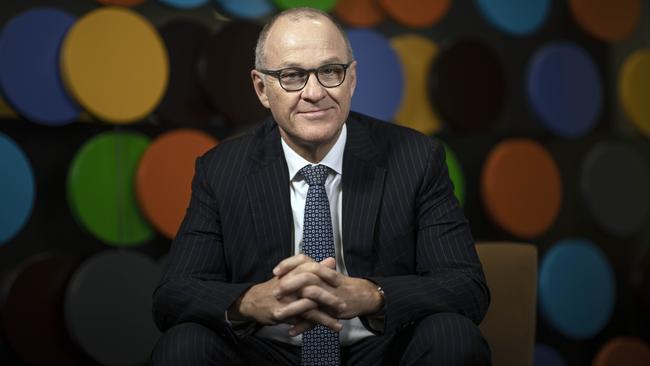Australia set to be a double winner in renewables shift: PwC
Australia simply can’t lose in the energy stakes according to the boss of professional services firm PwC.

Australia will be an “enormous winner” from the global transition to renewables because it has both old and new energy resources, according to PwC Australia chief executive Tom Seymour.
He said that despite reports of $50bn of local investment heading to clean energy projects in Britain, Australia could expect strong capital flows from Japan and South Korea to develop new mines around minerals at the core of new energy products.
“We are probably the richest, the most regionally endowed nation in lithium, cobalt, rare earths, palladium, copper and nickel, all of which are somewhere between 200 and 1000 per cent under-supplied,” he said. “We’ll do well on the old world energy in the transition stage and we will be catalysts for the new world … a massive amount of capital is going to come from Korea and Japan to build our critical minerals industry.”
Mr Seymour said the transition to renewable energy would take longer than people expected, not because of a lack of will but because of the logistics involved in supply chain inputs, including labour skills for the “huge engineering feat”.
“It’s just going to be harder and take longer to rebuild electricity grids to create the renewable capacity,” he said. “It will absolutely happen but it is going to be harder … and that means traditional energy sources like gas and coal are going to go to very high prices for a very long time because no one’s invested in new gas and coal in relative terms for the last four or five years. Those old world commodities are going to be really highly priced for longer than people think.”
Mr Seymour also argues that the recent AUKUS agreement on submarines could be the biggest single economic agreement Australia has ever signed.
“Everyone’s focused on the defence element (but) the US and the UK are going to spend real money on the ground in Australia, collaborating with Australia on data, on space, on cyber like they’ve never done before,” he said. That industry – data, space, cyber – is where all the high value jobs of the future are going to be, whether it’s in defence or not.”
Billions of dollars of American and British taxpayer money would be spent in Australia.
“If you join the dots … the energy transition will be good for us. While our balance sheet’s terrible, it’s better than anyone else in the world,” he said.
“…We’re going to be seen as the local country which works with places like the US and the UK to ensure that the Indo-Pacific is kept safe. Australia could be in for two decades of the greatest prosperity it has ever seen.”
But he warned that this would require “really clever government policy” and continued collaboration between government and business. Covid-19 had shown government and business working hand in hand and this should continue. “The desire of the average Australian for more services is going up, not down,” he said. “But how do you do that in a way which is more efficient, effective, digital?
“Most big businesses in the last decade have tried to digitise to provide a customer experience which is at least as good if not better, but in a digital world, which means it’s cheaper, which drives productivity. I think the government has got to continue on that agenda; otherwise, the problems get bigger.”
The List: 100 Green Power Players
Government needed to let go of a lot of controls, he said. “So much of that goes to the regulatory system. Political leaders need to send a really strong message to the public servants, they need to give them permission, we’re going to allow you to operate with business in a different way. If you create an environment where people are too scared to walk outside of a really narrow tightrope you end up just getting box ticking. Pre the pandemic we had become one of the most regulated modern economies in the world.
“We need to accept that public servants, if they are going to work with business in a more collaborative way, they’re going to make mistakes and get some things wrong, but they’ll innovate and get things done much quicker and in a more efficient way, which will lead to smaller government, better productivity, more efficient outcomes.”
He praised Tuesday’s budget and said both the Coalition and Labor had “read the room” and understood Australians had no appetite for reform at this point.
“I think it’s a pretty clever budget,” he said. “The handouts up relatively targeted, but more importantly, they are transitory. So the fuel excise doesn’t last forever, some of the rebates don’t last forever, so they’re not sort of fixing expenditure that’s very hard to take away.”
One big plus was the support for skills development, which was the single biggest issue in Australia, he said.








To join the conversation, please log in. Don't have an account? Register
Join the conversation, you are commenting as Logout